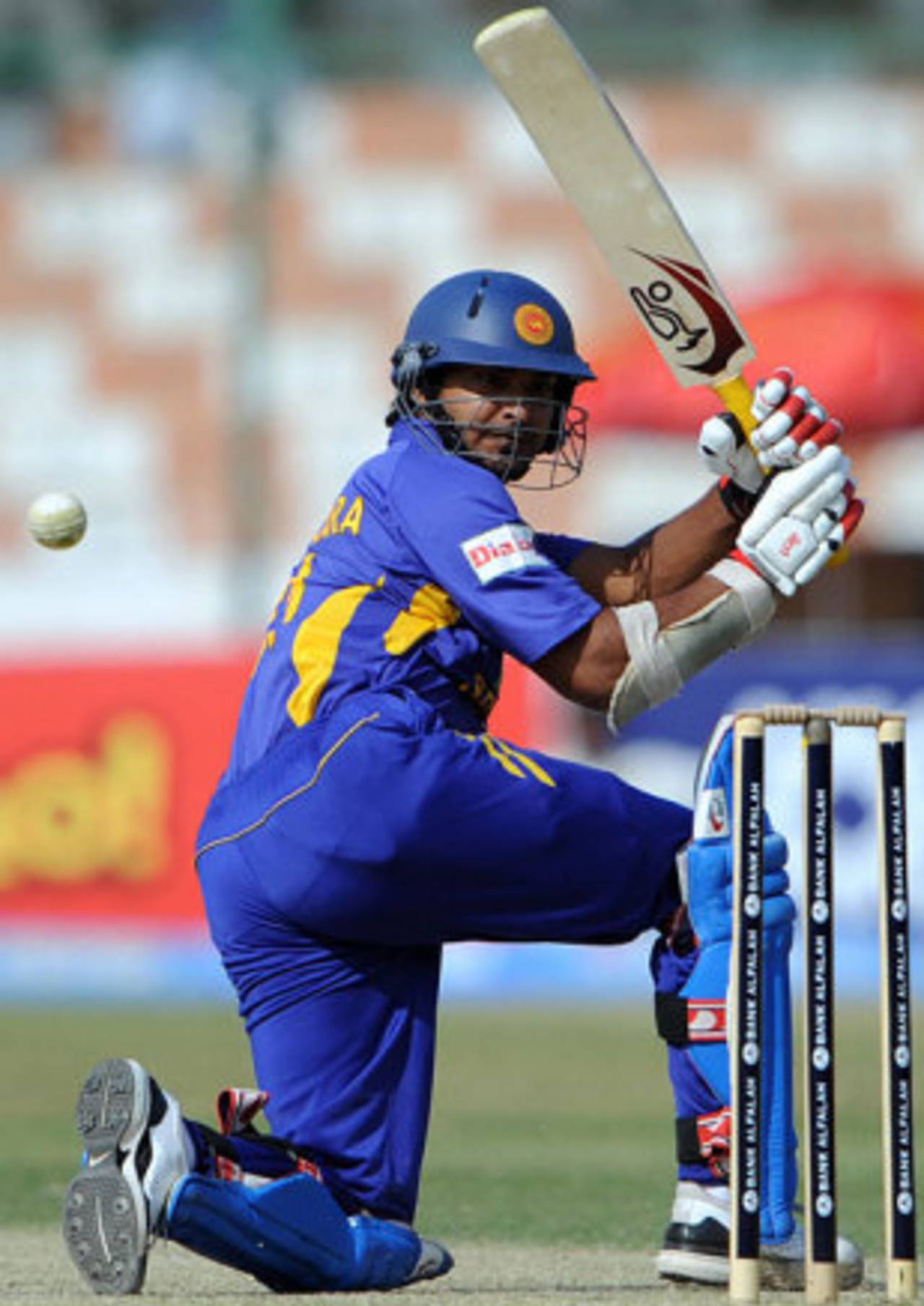Sri Lankan captain
Kumar Sangakkara believes John Buchanan's idea of having multiple captains in a team is an interesting concept that opens endless possibilities for the game's future. Sangakkara said that Twenty20, which he called cricket's maverick form, was a good testing ground for such "maverick ideas", which need to be tried and tested for the game to evolve.
Sangakkara, who will be making his debut as the full-time captain of Sri Lanka during the ICC Twenty20 World Cup in June, said he understands Buchanan's concept because he believes that leadership is always situational. However, the wicketkeeper-batsman's endorsement comes with a few lines of caution attached: a lot depends on team communication; it works better for a franchise rather than a national team; and hopefully, it's not a marketing gimmick by Kolkata Knight Riders ahead of April's IPL.
Asked whether he endorsed the multi-captain experiment, Sangakkara told Cricinfo: "If it's a way to go forward and it shows results, why not? Everyone is looking for the edge to win. If this is going to provide them that in the future, then it's well and good."
Buchanan, the former Australia coach, had publicly unveiled the concept
last week in Kolkata to spark a furious debate in India, where fans fear that the power of Sourav Ganguly, the popular Kolkata captain, may be diluted. Buchanan has shortlisted Chris Gayle, Brendon McCullum, David Hussey and Brad Hodge to share the captaincy role with Ganguly.
Sangakkara said the thought matched his own about captaincy. "I believe that leadership is always situational," he said. "It's a very interesting concept, and I think it's all about using the best man for a specific situation. It will be tried and tested, and then you'll find that some people are better at ensuring that bowlers are changed correctly, and someone might be good for field settings."
According to Sangakkara, Buchanan's concept is not new in international sport, either. "Cricket is evolving," he said. "In American football, you have an offense and defense, a defensive coach and an offensive coach. And cricket, going forward, might have to look at itself differently. Things like fielding captains and bowling captains are experimental tactics where teams are trying to find the best way forward in Twenty20."
The Sri Lankan veteran went to say that the basic thought behind this idea has been employed by his national team for many years now. "The traditional idea of one captain doing all the work is never really true," he said. "In Sri Lankan cricket, at different times and difficult times, different people step up to lead the side. Also, we've always encouraged a team of leaders who are independent thinkers and who are not afraid to contribute ideas and information on and off the field. That feeding of information, as long as the captain has a clear idea of what to choose and what not to, has been the way we've been trying to nurture our cricketers. So the concept of having many leaders, many thinkers and so-called many captains has already been working in our side for a long time."
But the pitfalls that await such a revolutionary concept, Sangakkara said, are many: there could be a clash of egos on the field or as Mickey Arthur, the South Africa coach,
pointed out, players may get confused over whom to turn to.
"If you have two or three captains operating at the same time on the field with the same players, you can have temperaments clashing, ideas clashing, and there could be an overload of information," Sangakkara said. "The players themselves may not know who to turn to or listen to for guidance in the end. So you see a potential for confusion."
The other concern, he said, was the thought that Buchanan's concept - and the controversy it has generated - could just be a PR exercise with just 22 days to go for the second season of the IPL. "Hopefully, it is not a marketing gimmick," Sangakkara said. "Something to create more interest towards that one franchise, and to get the public to say, 'Well, we'll follow the Kolkata Knight Riders from here on'."
Sangakkara, of course, will get a first-hand feel of the multi-captain concept when his IPL team, Kings XI Punjab, take on Buchanan's Knight Riders on April 21 in Durban and May 3 in Port Elizabeth. Asked whether he would implement the idea - if it worked at the IPL - for the Sri Lanka team for the Twenty20 World Cup, Sangakkara said he would have to think hard about it.
"When you play for a franchise, it's completely different from playing for a national team," he said. "You play with highly experienced international players; you play with top quality players in the national side as well but the feeling of 'team' here is different. We'll have to wait and see how it works in multi-international teams as opposed to one national team."
Finally though, Sangakkara said, he firmly believed that the multi-captain idea needs to be given a good run before a judgment is passed. "Ideas like this which seem radical and progressive should be given a good run, and we should see how they come off," he said. "If it comes off well, it'll be a great innovation. If it doesn't, it might look a bit stupid. Either way, it'll be an interesting time for cricket."
Ajay Shankar is deputy editor of Cricinfo
